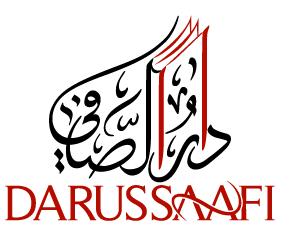Question: Assalamu Alaykum wa rahmatullahi wa barakatuh. My Question to the shaikh is: there is a service on the social media networks called Instagram or Twitter. It is, Oh Shaikh Salih, used to broadcast everything that is placed on it through the communication devices. Is placing verses of the Quran or Ahaadith of the Prophet (ﷺ) or admonishments or words of…
Category: Fatawa
Advice to the Sisters who use Social Media- Shaikh Salih al-Fawzaan
Question: A letter has reached us from one of the sisters saying: oh Virtuous Shaikh Salih: What is your advice for sisters who participate on social media networks? These sisters describe their situation as divorced or unmarried or married and they want to bring benefit by connecting with the people? Answer: “All praise is due to Allah Lord of the…
Principles for Using Social Media- Shaikh Salih al-Fawzaan
Question: The questioner asks about the principles in dealing with the current social media and a specific advise to the students of knowledge about dealing with this issue and what is related to sending religious messages [on social media] or spreading rumors that are not verified? Answer: ” No doubt, social media has varied and evolved. It is a double-edged…
Using Social Media to Defend the Religion- Shaikh Salih al-Fawzaan
Question: If Social Media is used to spread warning against trials/tribulations and to protect the Aqeedah, is this considered from defending the religion and the country? Answer: “Yes, if you have the capability for this and you have knowledge and wisdom and you use these means to spread beneficial knowledge and to call to Allah and Islam, then this is…
Shaikh Al-Albani on how to respond to a Disbeliever who Sneezes
Halabi: The questioner says: I read in some books that when the disbeliever sneezes, the Muslim says to him: يهديكم الله و يصلح بالكم May Allah guide you and rectify your affairs So is the affair like that as is apparent? Then, are we allowed to translate it into English so that the people may know it or what resembles…
How to end the Khutbah- Shaikh Al-Albani
Questioner: With what should you end the first khutbah with on the Friday? Is it allowed to end with ordering people to seek forgiveness? Shaikh: The khutbah on jummah, whether the first khutbah or the second, does not have specific structure. Holding fast to seeking forgiveness at the end of the khutbah is not a saheeh sunnah. It came in…
Ruling on Hugging on the Day of ‘Eid- Shaikh Bin Baz
Question: The people hug each other on the days of Eid and they are not returning from a travel. The time between it is short, the time of prayer, then they hug each other after Eid prayer. We hope from you a clarification [about this practice]? Answer: We do not know of an origin for hugging [on the day of…
The Ruling on Using the Name Islam and Musheer – Shaikh Yahya Ibn Ali al-Hajoori
Question: Is it allowed to name daughters with the name Islam and children with the name Musheer? Answer: “Islam is a religion and his daughters should not be called Quran and Islam or Deen (religion). He should avoid this. As for Musheer, there is no prohibition in naming with this”. [Taken from : https://sh-yahia.net/show_books_39.html] Translated by Faisal Ibn Abdul Qaadir…
The Ruling on Wearing Clothing That Has A Reference To Haram – Shaikh Ibn ul-Uthaymeen
Question: Oh Virtuous Shaikh, What is the ruling on clothing with graphics that show melodies and music. Is it allowed to wear these and pray in them? Answer: “Every clothing that has a reference to what is haram, then wearing it is haram. Clothing that has pictures are haram. Those that have pictures of musical instruments are haram. Those that…
The Ruling on Saying ‘Wa Iyyaka’ to the One Who Says ‘Jazakallahu Khairan’ – Shaikh Abdul-Muhsin al-‘Abbad
Question: What is the ruling on saying ‘Wa Iyyaka’ to the one who says ‘Jazakallahu Khairan’? Answer: “There is no harm in this. His statement ‘Wa Iyyaka’ means: May Allah reward you with good. So it is correct speech; no harm in it”. [Taken from: https://audio.islamweb.net/audio/index.php?page=FullContent&audioid=171121] Translated by Faisal Ibn Abdul Qaadir Ibn Hassan Abu Sulaymaan
